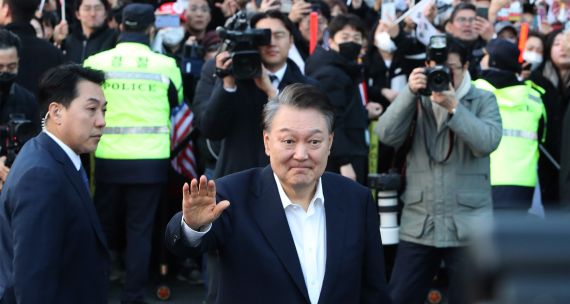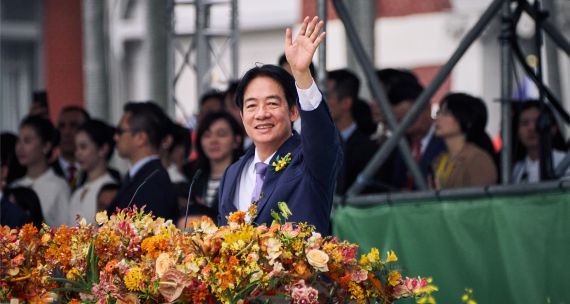The Takeaway
Since the start of 2025, Taiwan’s two main political parties, the governing Democratic Progressive Party (DPP) and opposition Kuomintang (KMT), have been locked in an unprecedented mass recall targeting lawmakers elected in the 2024 election. The legal process, which allows voters to remove legislators midterm, was catalyzed by profound disagreements over the budget passed in January. DPP-aligned actors are trying to unseat enough KMT lawmakers to reclaim control of the Legislative Yuan, Taiwan’s legislature. The outcome of the recalls against the KMT could hinge on swing voters in KMT strongholds. The KMT has pushed back with counter-recalls and a possible no-confidence motion.
If the DPP succeeds in replacing enough KMT lawmakers with lawmakers of their own, the KMT would lose a vital tool to oppose DPP policy proposals, easing the gridlock that has snarled Taiwanese politics.
In Brief
- The Legislative Yuan, Taiwan's unicameral legislature, is composed of 113 members.
- Civil society groups have filed recall petitions against 37 lawmakers from the KMT and its allies. The KMT has retaliated with petitions targeting 15 DPP members.
- The recall procedure entails three stages:
1. Petitioners must gather signatures from one per cent of eligible voters in the constituency to initiate the recall process.
2. They must then secure support from an additional 10 per cent of eligible voters to trigger a recall vote — decided by a simple majority.
3. For the result to be valid, at least 25 per cent of eligible voters must participate in the final recall vote.
- Taiwan’s election oversight body announced that deadlines for petitions for second stage recalls against the KMT lawmakers will fall between May 2 and May 23, while those against the DPP lawmakers will fall between May 31 and June 24.
- As of May 12, campaign organizers reported that the petitions against 31 of the KMT legislators have obtained sufficient signatures. As a result, the island may see its first mass recall as early as July. Thus far, no DPP legislator has reached the second-stage threshold.
Implications
The ‘China factor’ looms large. The KMT, which advocates for closer ties with Beijing, currently holds 52 seats in the Legislative Yuan in conjunction with the Taiwan People’s Party (TPP) and allied independents. This KMT-led coalition commands a working majority, significantly curtailing the ruling DPP’s ability to pass legislation.
The DPP has accused the opposition of obstructing key government initiatives, including efforts aimed at curbing Beijing’s political influence, such as legislation requiring lawmakers to declare and obtain approval for trips to the People’s Republic of China (PRC). The KMT-controlled legislature’s slashing of the government’s operational budget by 34 per cent — including reductions in defence spending — was seen as an unacceptable provocation by the DPP, which has sought to expand legislative powers to push back against opposition obstructionism. Brewing political turmoil, exemplified by the gridlock in the legislature, is affecting Taipei’s ability to react to pressure from Washington to bolster its military readiness at a time when the PRC is intensifying its military threats against Taiwan.
Critics argue the mass recall campaigns are undermining democracy. The opposition argues that the recalls, which are largely backed by civil society groups, are a reckless power grab by the ruling party and an attempt to silence its rivals. Taiwan’s relatively low threshold for recall votes has raised concerns about the legitimacy of these recalls, with some questioning whether campaigners have a compelling case for the removal of KMT lawmakers. DPP supporters have cited the necessity of responding to mounting pressure from Beijing and safeguarding Taiwan’s political stability to legitimize their recall campaign.
Political uncertainty hits as economic uncertainty grows, fuelled by a proposed 32 per cent U.S. tariff on Taiwanese goods. Though the tariffs have been suspended temporarily, they continue to cast a shadow over the island’s export-driven economy. If the DPP succeeds in regaining control over the Legislative Yuan, it would, in theory, enable swifter policy responses to economic turmoil. Recent polls suggest that public opinion on the recall campaigns remains divided, with 45.9 per cent opposed and 40 per cent in support. Opponents cite concerns about wasting public resources and deepening political gridlock. In addition, faltering tariff negotiations could erode support among voters who had initially backed the recall effort.
What’s Next
1. DPP faces an uphill battle
The KMT is on the back foot. Based on the 2024 legislative results and recall thresholds, experts identify 10 KMT lawmakers as “most at risk” of being unseated. However, success for the DPP will hinge on its ability to mobilize centrist voters, as the contested seats are concentrated in KMT strongholds such as Taichung and Taoyuan. Among these swing voters, the outlook is not altogether encouraging: nearly half oppose the recall, while only 23.9 per cent support it.
2. DPP could face a backlash – and the KMT may be prompted to moderate its positions
Though its recall campaign does not enjoy widespread support, the DPP has been resolute in its efforts to unseat rival KMT lawmakers — a political gamble that could backfire ahead of 2026 local elections. For its part, the KMT is weighing a no-confidence motion in the legislature, which could force the DPP into negotiations or even trigger the dissolution of parliament.
Meanwhile, the KMT is likely to face pressure to moderate its stance, especially on cross-strait relations. Pushback against pro-Beijing lawmakers — even among party loyalists — may drive the party toward a more centrist course. That shift is likely to crystallize in this year’s party leadership race, which will shape its path toward the 2028 presidential contest.
• Edited by Erin Williams, Senior Program Manager, Vina Nadjibulla, Vice-President Research & Strategy, and Ted Fraser, Senior Editor, APF Canada






